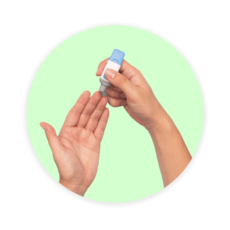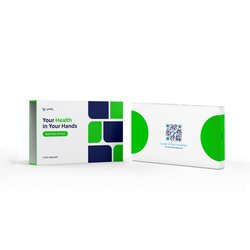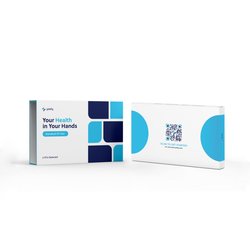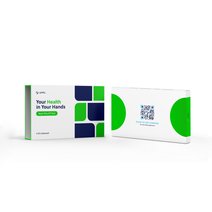
Comprehensive STI Test Kit
£109.00
Our simple yet thorough at-home STI test to detect 8 infections, putting your mind at ease. Fast and accurate results, with guidance on next steps, delivered straight to your online results portal.. Learn How It Works.
Tests for:
ChlamydiaGonorrhoeaTrichomoniasis
HIV
SyphilisHepatitis B
Hepatitis CMycoplasma
You May Also Like
How Our Tests Work

Step 1: Order Online
Choose from one of our four STI test kits and order it online via our secure portal.

Step 2: Discreet Packaging
Your test kit will arrive through your letterbox in discreet packaging, usually the next working day.

Step: 3 Collect Samples
Following the step-by-step instructions, collect your samples and post them to our lab using the pre-paid envelope.

Step 4: Get Results
Receive your results and treatment advice in a few days via our advanced portal.
How Insti HIV Tests Work

Step 1: Order Online
Choose your Insti HIV test and order online, via our secure website.

Step 2: Discreet Packaging
Your test kit will arrive through your letterbox in discreet packaging, usually the next working day.

Step: 3 Collect Samples
Following the step-by-step instructions on to how set up your test, when to collect your blood sample and how.

Step 4: Get Results
Add your sample to the detection device as instructed and get your results within 60 seconds.
How To Collect Your Samples
How To Take An Insti HIV Test
Learn About the STIs Detected by This Test
Compare STI Kits
Chlamydia
●
●
●
●
Gonorrhoea
●
●
●
●
Trichomoniasis
●
●
●
●
Syphilis
●
●
●
●
HIV
●
●
●
●
Hepatitis B
●
●
●
●
Hepatitis C
●
●
●
●
Mycoplasma
●
●
●
●
Lorem ipsum dolor
sit amet
Lorem ipsum dolor
sit amet
Lorem ipsum dolor
sit amet











